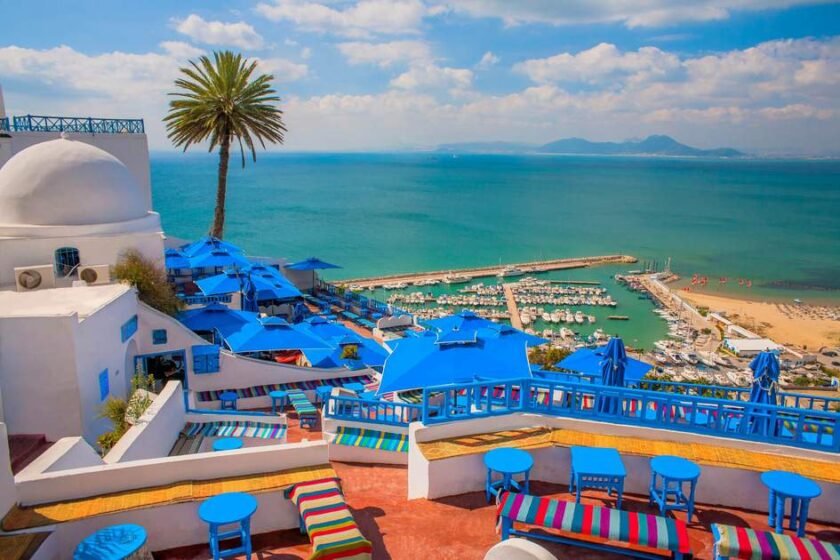The 26th edition of the Carthage Theatre Days featured a powerful lineup of plays operating outside and within the official competition, using the stage to dissect pressing political and social issues across the Arab world.
Jawad Al-Asadi’s “Circus”: A Metaphor for a Shattered Iraq
Playing outside the official competition, Iraqi director Jawad Al-Asadi’s “Circus” presented a bleak, abstract vision of a society destroyed by war. The play, devoid of traditional circus elements, unfolded in a dimly lit space haunted by the sound of a distant dog. It centered on a collection of broken characters: a circus owner whose wife left after being raped by an officer, the wife herself, and an old novelist suffering from writer’s block.
Through their fragmented interactions and harrowing monologues, “Circus” depicted the complete collapse of human values and social structures under the weight of corrupt authority and foreign intervention. Al-Asadi’s dense, symbolic text served as a direct metaphor for the successive disappointments and psychological trauma experienced by populations across the Arab world, leaving them with nothing but bitter memories.
“Statue of Stone”: Exposing the Lies of History
Another non-competitive production, “Statue of Stone,” directed by Karim Ashour, tackled state-sponsored historical revisionism. In an unnamed city, authorities commission a statue to honor “Captain Nout,” a national hero of the liberation. As preparations for the unveiling ceremony intensify, a returning historian and a drunken sailor named “Mawja” begin to unravel the truth.
The play reveals that Nout is not only alive but also a fraudulent opportunist and that “Mawja” is the real Nout, who has been hiding for years. The narrative becomes a sharp critique of a corrupt system that profits from selling false narratives to the people, exploring the dilemma of the artist caught between complicity with the regime and marginalization.
“Plow Over the Bones of the Dead”: An Eco-Critical Revenge Tale
Representing the United Arab Emirates in the official competition, “Plow Over the Bones of the Dead,” directed by Muhannad Karim and adapted from a novel by Nobel laureate Olga Tokarczuk, presented a fierce eco-parable. Set in a remote village, the play centers on a series of mysterious killings of hunters, suggesting the animals are taking revenge on humanity for its cruelty and environmental destruction.
Mixing cinema and theatre, the production asked urgent questions about humanity’s right to dominate nature. The stage, enhanced by video mapping, resembled a dark “pen” or “cage,” emphasizing a world where freedom is an illusion and civilization is a form of savagery. The play forced the audience to confront who truly holds the right to life and who decides the fate of others.
“The Runaways”: A Portrait of Social Stagnation
In the official competition, Wafa Taboubi’s “The Runaways” offered a critical look at Tunisian society. Six characters from different struggling social classes are brought together at a desolate bus stop, waiting for a bus that never arrives. This waiting becomes a metaphor for a society awaiting a change that has yet to come.
The characters—including an elderly cleaner, an unemployed law graduate, a seamstress, and a man pursued by the law for alimony—embody issues of poverty, marginalization, and crumbling infrastructure. Against a dark, sparse set, the play delved into their existential anxieties, asking, “Who are we and what is our fate?” Al-Taboubi masterfully used bitter satire and light to guide the audience through a painful yet compelling journey, punctuated by fleeting moments of hope.
Overall, the festival showcased a theatre deeply engaged with the political and social realities of the region, using innovative staging and powerful narratives to question authority, expose corruption, and give voice to the marginalized and broken.
Pipo Delbono’s “Amore” is a Universal Hymn to Love’s Power
Italian director Pipo Delbono presented “Amore” (Love), a transcendent theatrical performance that took the audience at the Théâtre des Régions on a profound exploration of love in all its forms.
The production, staged on Tuesday, November 25, 2025, was more than a play; it was a lyrical and corporeal immersion. Using the melancholic strains of Portuguese Fado as its foundation, “Amore” blended poetry, music, song, and dance into a poignant journey.
From his desk on stage, Delbono himself served as a narrator, his hypnotic voice weaving the words of poets like Rainer Maria Rilke and Jacques Prévert with everyday speech. The performance became a “geography of love,” transporting the audience musically from Portugal to Angola and Cape Verde to underscore the universality of love—whether for a partner, a child, a homeland, or a spiritual quest.
The stage was alive with striking visual tableaux. The color red dominated, shadow play highlighted the silhouettes and inner turmoil of the actors, and vibrant African contemporary dance mingled with courtly Italian styles. This multicultural ensemble, featuring performers of all ages alongside Mozambican singer Selma Uamusse and Portuguese musicians, served as a powerful metaphor for love’s unifying force in a fractured world.
At the heart of the spectacle was a potent symbol: a dry, barren tree positioned center stage. As the performance progressed, this tree gradually regained its color and bloomed with flowers, visually representing Delbono’s central thesis. In a world gripped by war, hatred, and ecological crisis, “Amore” posits love not as a mere sentiment, but as the essential, healing solution—the only true nourishment for a wounded earth and soul.
TunisianMonitorOnline (Douha Essaafi-JTC)




